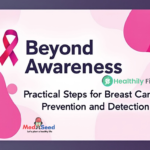Introduction
Artificial intelligence (AI) has made significant strides in various fields, including healthcare. AI-powered diet and exercise plans have gained popularity as accessible and seemingly personalized solutions to improve health and fitness. However, relying solely on AI-generated advice can be harmful and misguided.
- Lack of Personalization
One of the fundamental problems with AI-advised plans is the lack of true personalization. While AI algorithms can analyze vast amounts of data, they often fail to grasp individual nuances, health conditions, and preferences. For example, an AI may not be able to consider allergies, dietary restrictions, underlying medical conditions, or personal fitness levels accurately. Human healthcare professionals, on the other hand, are trained to assess unique individual needs, ensuring that recommendations are tailored to specific requirements.
- Ignoring Emotional and Mental Health
A crucial aspect of healthcare that is often overlooked by AI is the emotional and mental well-being of individuals. Diet and exercise plans are not one-size-fits-all solutions. They need to be designed with consideration for an individual’s psychological health and emotional relationship with food and exercise. Healthcare professionals can provide compassionate guidance, taking into account mental health concerns that AI algorithms are ill-equipped to address.
- Potential for Misdiagnosis and Misinterpretation
While AI algorithms are continually improving, they are not infallible. Relying on AI-generated plans could lead to misdiagnoses or misinterpretations of symptoms. These algorithms lack the capacity to conduct comprehensive physical examinations, interpret complex medical histories, or recognize subtle signs that human healthcare professionals are trained to detect. Such inaccuracies could result in worsening health conditions or delayed diagnoses.
- Risk of Overexertion and Injury
AI-powered exercise plans often focus on maximizing outcomes, sometimes overlooking the risk of injury or overexertion. Without the ability to gauge an individual’s physical capabilities in real-time, AI may inadvertently recommend exercises that are beyond the person’s fitness level, leading to potential harm. Healthcare professionals can conduct proper assessments and design safer, progressive exercise programs tailored to an individual’s abilities and needs.
- Encouraging Unsustainable Habits
AI-generated diet plans may prioritize rapid results without considering long-term sustainability. Crash diets or extreme restrictions can lead to nutrient deficiencies and adverse health effects over time. Human healthcare professionals, on the other hand, promote balanced and sustainable lifestyle changes, supporting lasting improvements in health and well-being.
- Lack of Accountability and Support
One significant advantage of consulting healthcare professionals is the human touch they provide. They offer accountability, support, and motivation to their patients, helping them stay on track with their health goals. AI, in contrast, lacks empathy and the ability to foster a genuine patient-provider relationship.
Conclusion
While AI continues to revolutionize various industries, it cannot replace the expertise and empathy provided by human healthcare professionals. AI-advised diet and exercise plans lack personalization, emotional consideration, and the ability to address complex health issues accurately. The potential for misdiagnosis, injury, and unsustainable habits further emphasizes the need for human involvement in healthcare decisions.
As we embrace AI’s potential, it is essential to remember that health is a multifaceted aspect of life. Relying on AI-generated plans alone can be risky. By seeking guidance from healthcare professionals, we ensure a holistic and individualized approach to our well-being, safeguarding our health in the best possible way.
Author Profile

Latest entries
 InformationJanuary 7, 2025HMPV Outbreak in India: What You Need to Know
InformationJanuary 7, 2025HMPV Outbreak in India: What You Need to Know GeneralOctober 25, 2024Shattering Stereotypes: Male Breast Cancer
GeneralOctober 25, 2024Shattering Stereotypes: Male Breast Cancer GeneralOctober 25, 2024Beyond Awareness: Practical Steps for Breast Cancer Prevention and Detection
GeneralOctober 25, 2024Beyond Awareness: Practical Steps for Breast Cancer Prevention and Detection GeneralJuly 25, 2023How to Protect Your Eyes from Eye Infections During the Monsoon Season
GeneralJuly 25, 2023How to Protect Your Eyes from Eye Infections During the Monsoon Season
